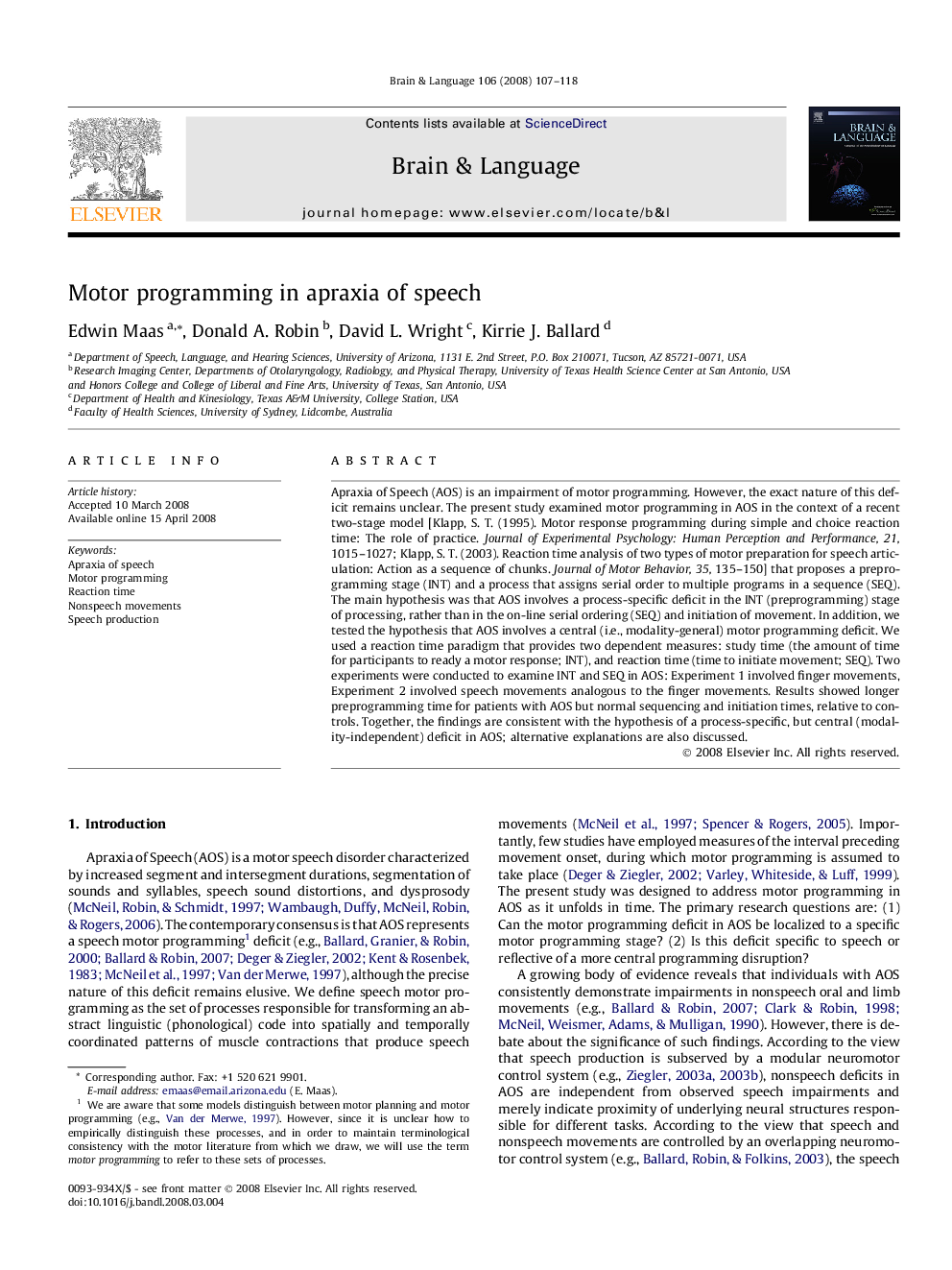| کد مقاله | کد نشریه | سال انتشار | مقاله انگلیسی | نسخه تمام متن |
|---|---|---|---|---|
| 925870 | 921545 | 2008 | 12 صفحه PDF | دانلود رایگان |

Apraxia of Speech (AOS) is an impairment of motor programming. However, the exact nature of this deficit remains unclear. The present study examined motor programming in AOS in the context of a recent two-stage model [Klapp, S. T. (1995). Motor response programming during simple and choice reaction time: The role of practice. Journal of Experimental Psychology: Human Perception and Performance, 21, 1015–1027; Klapp, S. T. (2003). Reaction time analysis of two types of motor preparation for speech articulation: Action as a sequence of chunks. Journal of Motor Behavior, 35, 135–150] that proposes a preprogramming stage (INT) and a process that assigns serial order to multiple programs in a sequence (SEQ). The main hypothesis was that AOS involves a process-specific deficit in the INT (preprogramming) stage of processing, rather than in the on-line serial ordering (SEQ) and initiation of movement. In addition, we tested the hypothesis that AOS involves a central (i.e., modality-general) motor programming deficit. We used a reaction time paradigm that provides two dependent measures: study time (the amount of time for participants to ready a motor response; INT), and reaction time (time to initiate movement; SEQ). Two experiments were conducted to examine INT and SEQ in AOS: Experiment 1 involved finger movements, Experiment 2 involved speech movements analogous to the finger movements. Results showed longer preprogramming time for patients with AOS but normal sequencing and initiation times, relative to controls. Together, the findings are consistent with the hypothesis of a process-specific, but central (modality-independent) deficit in AOS; alternative explanations are also discussed.
Journal: Brain and Language - Volume 106, Issue 2, August 2008, Pages 107–118